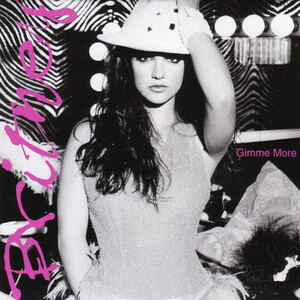Released: 9th November 1998
Writers: Barry Gibb / Maurice Gibb / Robin Gibb
Peak position: #1
Chart run: 2-5-5-8-8-6-4-1-2-3-3-3-6-10-10-15-16-20-23-24-30-30-32-42-41-48-57-59-65-69
Although Tragedy was released as a double-A side in the UK, much of the focus of Steps’ fourth single was initially on the Christmassy ballad, Heartbeat. That is until it became apparent their inspired cover of a Bee Gees classic was turning into something much bigger than anyone would’ve predicted.

Heartbeat/Tragedy is a single quite unlike any other in Steps’ (sizeable) back catalogue. The group had other hits – some before and many after – but none made such a measurable impact commercially or culturally as this one. Which is to say that despite being a double-A side, Heartbeat is not the main draw here. It did, however, represent just how far Steps evolved in little more than 12 months since their debut as a line-dancing novelty with 5,6,7,8. Subsequent singles Last Thing On My Mind and One For Sorrow peaked at #6 and #2, respectively, turning them into an act with longer-term potential. That ambition was firmly cemented when their debut album – Step One – debuted at #2.
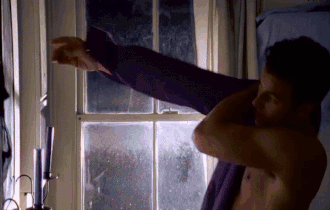
Releasing Heartbeat as the next single did feel like a somewhat obligatory choice timed to coincide with the festive season. Yet, the notion of Steps performing a wintry ballad would’ve been inconceivable one year earlier, so it was significant in that regard. Indeed, few would have expected the group to be releasing anything at all. Yet, while there was still an element of the group finding their feet with Step One (almost half the album is comprised of mid-tempos and ballads), Pete Waterman’s “ABBA on speed” vision was clear enough that even at this early stage, Heartbeat felt somewhat off-brand. So, the decision to pair it with an uptempo cover of Tragedy was as inspired as it was necessary.

The track was written and initially performed by the Bee Gees. Though perhaps not among their most immediately-remembered signature hits, it formed part of the group’s successful post-Saturday Night Fever era, topping the UK and American charts in 1979. Steps recorded their version of Tragedy for inclusion on the album Gotta Get A Message To You: Tribute to the Bee Gees, which sought to raise money for Granada TV’s Live Challenge 99 fundraiser. It featured acts including Boyzone, 911, Cleopatra and Louise performing Bee Gees covers. However, Heartbeat/Tragedy itself wasn’t released in aid of the charity. That aspect never really factored into the promotion, but what’s more surprising in hindsight is that Heartbeat, rather than Tragedy, ended up being front and centre of the single. A sequence of the dance steps appeared on the inlay, but everything else – the artwork, the printed lyrics and the bonus track (an instrumental) – focused solely on Heartbeat. If Jive Records had even an inkling of just how significant Tragedy would become for Steps, there is no way it would’ve been such an afterthought in the formatting and presentation.
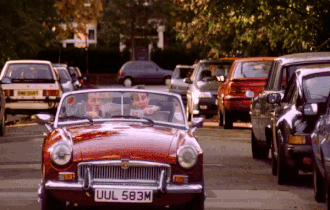
Tragedy is one of those songs that gained such prolonged exposure (which some might consider having moved into oversaturation) and became so firmly woven into the fabric of the ‘90s charts that it can be easy to overlook what made it so popular in the first place. From a production perspective, Paul Waterman and Andrew Frampton updated the track for a new era of pop fans – many of whom wouldn’t necessarily be acquainted with the original – while remaining faithful to much of what made it a hit the first time around. They find a sweet spot where Steps’ version draws inspiration from the melodramatic dance-rock/disco source material but doesn’t mimic it to come off as a pastiche. The distinctive electric guitar riff is recreated in a ‘90s bubblegum synth fashion (complete with an accompanying air guitar move in the accompanying dance routine), the ominous. metronomic chord melody is set to a snappy Europop beat, while disco-esque string stabs cut playfully through the chorus.
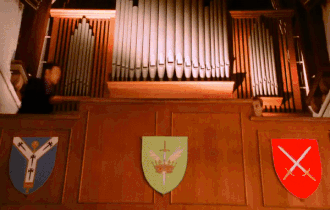
The instrumental is a massive part of the identity – some sections run between 20 and 30 seconds with no vocals – which also remains the case for Steps. Their version is shorter; it has a slightly faster tempo and omits the fade-out chorus, opting instead for a sustained note from Claire as a nod to the Bee Gees’ falsetto runs in the original. Even so, at four-and-a-half minutes, it’s still reasonably hefty by late ‘90s bubblegum pop standards. Consequently, there’s a grandiosity about Tragedy that still stands out now as being notably imposing in a way few – if any – other songs in the group’s back catalogue are.
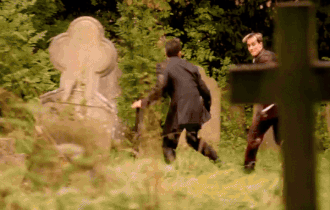
Lyrically, Tragedy fits perfectly into the melancholic, heartbreak-on-the-dancefloor persona that had already been established as a consistent theme on Step One. The track is filled with heightened turmoil (“Here I lie in a lost and lonely part of town, held in time in a world of tears I slowly drown”), and while Steps became more adept at conveying the inner conflict they sang about, here, the performance is disparately cheerful. Even when Claire is afforded the opportunity to flex her voice in the second verse: “Night and day there’s a burning down inside of me, oh, burning love with a yearning that won’t let me be…”, the power she exudes still evokes a sense of being bombastically smiley. And that is fine because Steps are coming at Tragedy from a completely different angle than the Bee Gees. There’s still plenty of feeling; the pre-chorus: “I really should be holding you, holding you, loving you, loving you…” is rousingly steeped in drama. But the intention of Gotta Get A Message To You: Tribute to the Bee Gees was for acts to put a spin on the original material rather than reinterpret it directly. That’s not to say everyone would like what Steps did with Tragedy, but this is supposed to be fun – hence being paired with Heartbeat to coincide with the festive party season – and that’s precisely what it delivers in spades.
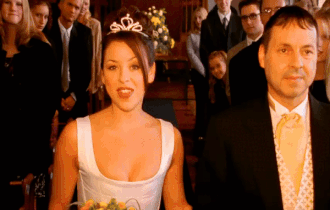
While Tragedy isn’t typically cited when discussing quibbles over the vocal arrangement on Steps’ material (which infamously became a point of contention between them), it’s an example of how the mixing could sometimes blend their voices to the extent of losing nearly all sense of individuality. H and Lee are certainly not audible on the chorus: “Tragedy, when the feelings gone and you can’t go on, it’s tragedy, when the morning cries, and you don’t know why, it’s hard to bear, with no one to love you you’re going nowhere. Tragedy, when you lose control, and you got no soul, it’s tragedy, when the morning cries, and you don’t know why, it’s hard to bear, with no-one beside you, you’re going nowhere”, while even Faye, Lisa and Claire become challenging to distinguish from one another clearly. It’s not as if Tragedy is the only song where that happens, but on most, there were still subtle ad-libs or riffs woven into the melody where different tones became more prominent. There aren’t any here. Compared to Heartbeat – which is very much Steps singing together as a five-piece – Tragedy is more of an amalgam with little deviation in the delivery (other than one changed line in the final chorus: “When the morning cries and your heart just dies”). That’s not necessarily bad; it makes the track invitingly easy to pick up and quickly memorable, as evidenced by the broad appeal it soon achieved.

In fact, it’s so well-realised that there’s a credible case for this now being more widely known to many people than the original in the UK, which is a rare feat as far as covers go. If ever a version of the track is likely to be heard, it’d probably be Steps’ because this wasn’t ‘just’ a hit for them as it had been for the Bee Gees. It was a crossover that catapulted them – and the song – into the public consciousness and onto the all-time best sellers list. The Bee Gees certainly haven’t been erased from the history of Tragedy, but they have far more iconic (and frequently played) tracks in their catalogue than this one.
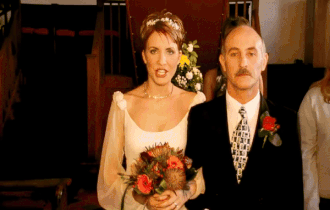
Yet, while the quality of Tragedy contributed significantly to the success Steps enjoyed, the music video and, in particular, the accompanying dance routine is what truly established this single as a phenomenon. The premise involves Faye, Lisa and Claire each getting married (in ceremonies well-attended by their real-life families and friends, which replicates the scale of the occasion) while Lee and H race around to rescue them by kidnapping the grooms and trapping them in the church’s vestry. Their motivation isn’t entirely clear, though sensibly, it’s not portrayed as a romantic intervention because that dynamic didn’t belong in Steps. The brides don’t seem displeased or puzzled at the chaos being wreaked upon their big day, though Claire doesn’t have much chance to object because she’s comedically thrown over Lee’s shoulder and carried away. It’s a likeably light-hearted sequence of events that – despite the disruption – still follows the main beats of a wedding day with the group fully dressed the part, standing in formation outside a church being showered in confetti before Tragedy concludes at the reception…

Steps’ gimmick since their debut had been easy-to-follow dance routines that could be printed on the inlay of their singles. Tragedy is no different in that regard, but its execution this time was nothing short of iconic. The full choreography accompanying the chorus is excellent – picking out both the beats of the lyrics and instrumental – but the “tragedy” move is what caught on. It was allegedly inspired by the poster from Home Alone, which features Macaulay Culkin as Kevin McCallister clasping his hands to his face. Recreating it directly would presumably create issues with head mics and cheek-slapping while (ostensibly) singing live, so the hands were raised. Thus, Steps’ most recognised dance move was born (although in a live context, a sea of fingers pointed to the air during One For Sorrow is equally impactful). The entire reception section of the video epitomises Steps at their exuberant best, so committed to the theme that they deliver full choreography with Faye, Lisa and Claire still wearing their wedding dresses (while Pete Waterman cameos as a DJ enthusiastically joining in). Even before the single was released, the visuals exuded a palpable sense of this now as a group with complete confidence in knowing precisely who they were, what they were doing and – most importantly – that audiences liked it.
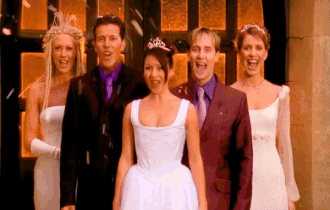
There was never any question that Heartbeat/Tragedy would be another solid hit for Steps, given the momentum behind the group from One For Sorrow and Step One. It duly sold 66,547 copies to debut at #2 and started to descend gradually through the top 10 – despite never recording weekly sales lower than 58,000 copies – as the market got busier in the run-up to Christmas. The group continued to promote Tragedy, and its growing popularity saw sales increase. The single subsequently climbed back up the chart and, in its eighth week, sold 98,000 copies to become the first #1 of 1999. There was undoubtedly an element of good timing; the song lent itself perfectly to the festive party season and capitalised on a lack of new releases over the Christmas-to-New Year period. But this was so much more than a seasonal whim. Heartbeat/Tragedy didn’t leave the top 10 until the end of February, by which point it had spent 15 weeks there. Furthermore, it remained in the top 75 for over half a year (30 weeks), selling 1.2 million copies and appearing on the UK’s all-time best-sellers list.

In nearly every conceivable sense, the single was an absolute phenomenon. The one exception to that is radio support. Tragedy never appeared in the airplay chart, with Heartbeat getting (somewhat begrudgingly) playlisted instead and becoming the group’s only song to date that reached the top 10. More recently, digital sales and streaming have added a further 200,000 to the single’s original total. Fittingly, it remains Steps’ biggest hit by a significant margin, even if 5,6,7,8 – which is rapidly accruing streaming ‘sales’ – will almost certainly overtake it in the future.

When the group landed a lucrative slot supporting Britney Spears on her American tour in 1999 and released Step One there (with a hybrid tracklist consisting of most singles up to and including Better The Devil You Know), Tragedy is one of the songs they released to promote the album. Unlike One For Sorrow – which received a remix and new music video – nothing was changed. And, though its impact was limited to a #25 peak on the US sales chart, the track did sell around 100,000 copies and helped Step One reach #79 on the Billboard 200.
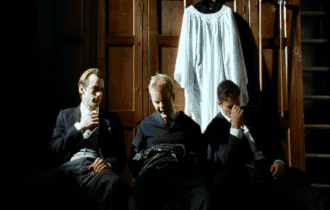
The legacy of Heartbeat/Tragedy has defined Steps in several ways. Most obviously, Tragedy quickly became their signature hit; that’s still – and likely always will be – the case from a pop culture perspective. It’s not their only song that’s well-known to the general public, but it is the one most people would reliably know as a reference point. The single also established a recurring pattern throughout Steps’ career in the ‘90s and ‘00s of pairing a track from their existing album with a new recording as a double-A side. Cynical a ploy as that might seem to boost sales, it never felt exploitative because the new material always appeared on the group’s next studio album rather than being re-packaged onto the existing one.

There would’ve been every expectation and justification to reissue Step One and include Tragedy, but that didn’t happen. Instead, it was saved for Steptacular, automatically giving Steps’ second album the accolade of containing a #1 single. A similar approach was adopted with Better The Devil You Know and Summer Of Love; both were promoted as part of the Steptacular campaign but are technically singles from Buzz. Record labels did – and still do – take advantage of fan loyalty by re-releasing albums, so it was refreshing that Steps never succumbed to the same temptation at the time.
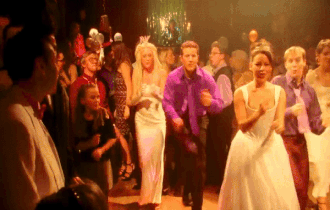
Perhaps the greatest achievement for the group, though, is that they rode the success of Tragedy and became bigger than the song. It was a once-in-a-career moment that could easily have consumed them. Selling 1.2 million copies of their fourth single undoubtedly elevated Steps to the next level. However, it also raised the possibility that they might be regarded as having served their purpose, and everything afterwards would be a downward trajectory. Yet, neither the group nor Jive Records rested on their laurels; a near-relentless run of 11 singles (18 including double-A sides and Thank ABBA For The Music) followed during the next three years. Steps embraced Tragedy and never tried to contest how much it resonated with the general public. Equally, though, it didn’t dictate what came next. Indeed, they never consciously attempted to recreate the moment, either. The closest example is probably Say You’ll Be Mine/Better The Devil You Know, but even that feels more circumstantial – being released the following Christmas – than anything more deliberate.

Because Tragedy quickly became synonymous with Steps, there is a degree to which familiarity has, perhaps understandably, bred a certain degree of contempt towards it from some fans. It’s never been rested from tour setlists and live shows, and in all probability, never will. However, more recently, there has been a willingness to move the track from the finale/encore slot where it usually resides, which is a welcome change. Even that might allow some room to enjoy Tragedy as a song and re-appreciate just how good it actually is.



